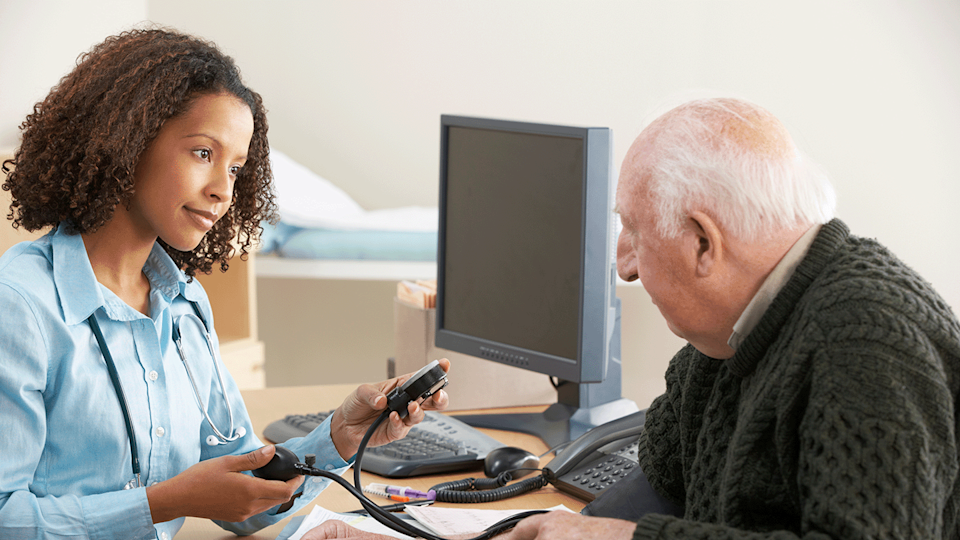It can seem daunting to advocate for yourself in healthcare, particularly if a medical professional attempts to dismiss your concerns. In this guide, we explore how you can practice self-advocacy, provide important resources, and information on where to turn if you need support.

Medical negligence
The direct discrimination of mental health care in the UK
Individuals seeking mental health support often face many challenges. Our legal team show how we can assist in protecting your rights in healthcare.
Mental health care is the last place anyone wants to experience direct discrimination. For some individuals, their mental health can be an incredibly vulnerable place and, when professionals in the field don’t take matters seriously, it can have further detrimental effects on their wellbeing.
Unfortunately, some individuals are more likely to have their concerns regarding their mental health dismissed, leading to displays of direct discrimination within the healthcare space.
What does direct discrimination look like?
Direct discrimination refers to the unjust or prejudicial treatment of different categories of people, especially on the grounds of ethnicity, age, sex, or disability. Individuals trusting in their healthcare providers rely on these professionals to help and support with any problems they are experiencing in regard to their mental health. Whether it’s through direct consultations or routine check-ups, an individual using the healthcare system will rely on a professional’s opinion to inform their own mental health journey.
Sadly, the current state of the UK’s mental healthcare system has led many to not receive the correct diagnosis, or have their troubles dismissed, due to cases of discriminatory behaviour. These cases have negatively affected groups of people based on demographic, socioeconomic, geographical and other factors. When a person has been admitted to a hospital on mental health grounds, they should be offered the correct care, treatment, and support, and not offered any less due to improper treatment in the healthcare system.
Examples of direct discrimination
Under the Equality Act 2010, there are several variations of discrimination through mental health care. For instance, a lot of medical research is based on findings and studies that were exclusively conducted on men - and didn’t consider the variations that would occur for women. Because of this, women are often misdiagnosed, or have their concerns outright dismissed, with other symptoms and complaints not taken seriously.
Another instance of injustice has shown itself in the form of racial discrimination. Health disparities and inequalities among people of the global majority have led to delayed diagnoses and misdiagnoses, ultimately affecting the level of trust individuals of all backgrounds and ethnicities have within the healthcare system. An NHS Mental Health and Wellbeing report shows that, despite higher prevalence, black adults have the lowest mental health treatment rate of any ethnic group, at 6% (compared to 13% in the White British group).
Evidence from the same report also suggests that people from Black Asian and Minority Ethnic communities are at higher risk of developing a mental health problem in adulthood. But they’re less likely to receive support for their mental health.
We wanted to investigate this further and asked 2,000 people their thoughts on mental health services in the UK and results differed depending on the demographic.
36% of men felt that mental health services in the UK were sufficient compared to only 24% of women. 30% of people identifying as white believed the services were sufficient compared to only 18% of Bangladeshi people and 25% of people that identify as mixed heritage.
Further to this, whilst 29% of white people feel their GP totally understood their concerns when discussing mental health, this figure dropped down to 11% for people of mixed heritage, 14% for Indian people and 18% for Bangladeshi people.
Accessing mental health support
It is not always easy to advocate for yourself when you’re already feeling vulnerable, such as when asking for support with mental health, we asked our Medical Negligence Solicitor, Hannah Seignior for their advice on what to do if you feel you’re experiencing discrimination when accessing healthcare:
“Make sure you go to meetings or appointments prepared. If you need to take notes, to make sure you remember everything, that’s fine. It’s something we encourage. That way, you won’t forget any important information. You can also take notes whilst in your appointment. It may also be a good idea to bring someone to an appointment with you who can help remember key points and act as a witness to your appointment.
If you feel your healthcare provider is treating you differently due to your gender or race, flag it in a letter to your healthcare provider and ask for it to be notarised in your record, this way, you will have evidence of any wrongdoing in the event of medical negligence occurring.”
If you aren’t sure what to write in a letter to your healthcare provider, Slater and Gordon can help with a free, downloadable example. We understand that it can be hard to advocate for yourself when your mental health is also suffering.
Empowering individuals
For an inclusive and equitable mental health care system, we must advocate for ourselves where possible and for one another. It’s crucial we cater to and recognise the unique challenges those in marginalised situations may face, ensuring healthcare is accessible and supportive.
Where you may need support in your healthcare journey, we have created an advocacy support pack.
These downloadable resources can be handed directly to your healthcare professional, letting you highlight and record the poor quality of care you believe you have received.
Our advocacy hub and blog content are also filled with tips and advice on:
- Your rights as a patient
- Third parties and charities you can contact for support
- What to do if you do experience medical negligence
It’s also vital to acknowledge the support that exists to help you advocate for yourself and others in vulnerable situations. Look at the valuable contributions from charities in this space:
- Mary Seacole House - Liverpool’s leading mental health charity for BAMER communities
- Saheliya - offering mental health and well-being support in the Edinburgh and Glasgow area
- Diversity Trust - an organisation dedicated to promoting equality, diversity and inclusion for mental health and well-being
How we can help
For when you need support in your healthcare journey, we have created an advocacy support pack, made of downloadable resources that can be handed directly to your healthcare professional, letting you highlight and record the poor quality of care you believe you have received.
If you believe you’ve received substandard medical care or have suffered further health issues because of clinical negligence, get in touch with our experts at Slater and Gordon. Your initial contact will be with one of our dedicated medical negligence advisors, who will gather all the necessary details about your case. To obtain further information, contact our medical negligence lawyers today on 0330 041 5869, or contact us online.


Often, the hardest part about making sure your voice is heard is knowing what to say in the first place. Our advocacy toolkit helps do just that. By downloading our template, you will have a letter, drafted by a legal professional allowing you to highlight poor care to your healthcare provider.

Brain injuries can be both traumatic and life changing. If you or a loved one has suffered a brain injury as a result of medical negligence, Slater and Gordon’s specialist brain injury solicitors can help get the compensation you deserve.

We understand how important support and advice is if you or a loved one is suffering from a brain injury. Headway is a national UK charity that works to improve life after brain injury by providing vital support and information to survivors. Read more about our partnership with Headway.